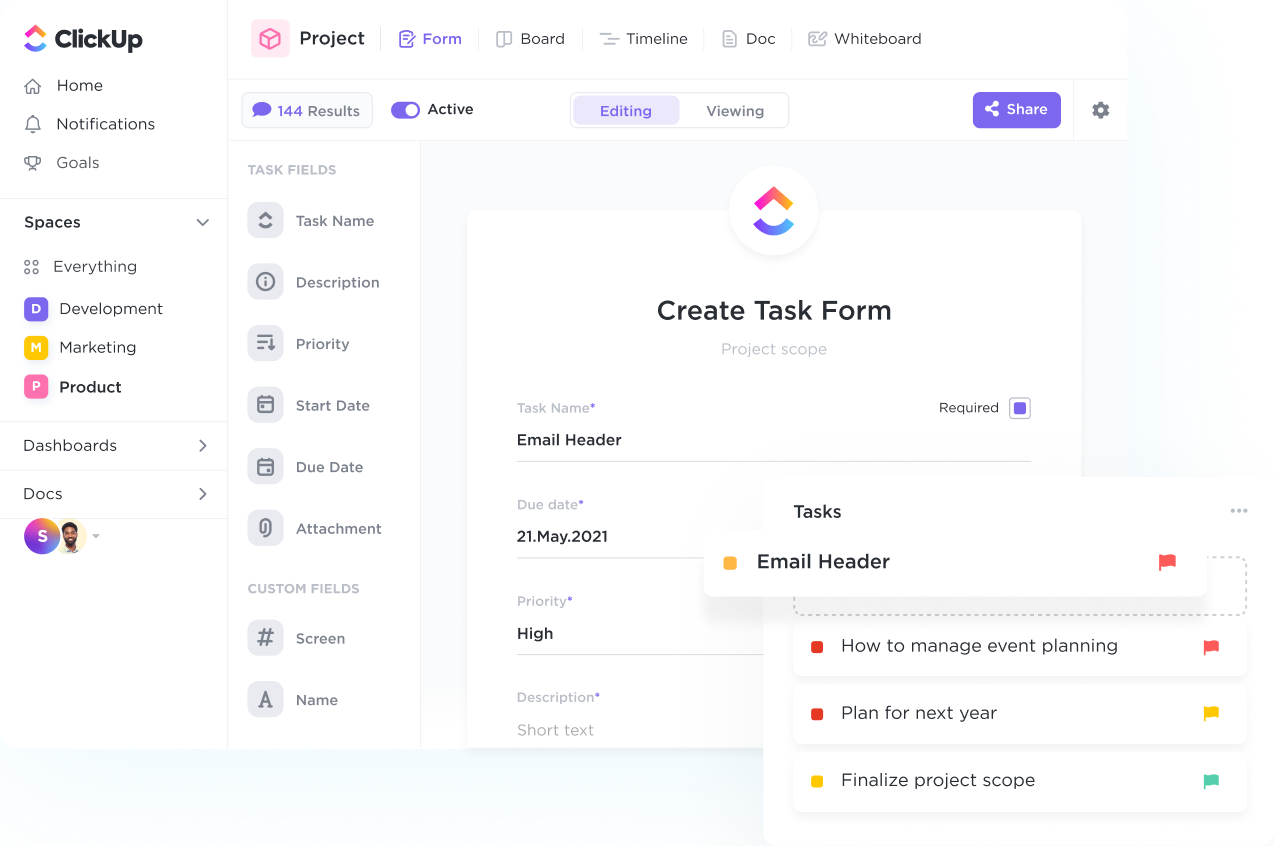Forms
Onboard customers and collect info in a snap.
Streamline your intake process, organize response data, and automatically create tasks with custom branded Forms powered by conditional logic.

Gantt Charts
Empower your policymaking team with a personalized CRM system designed specifically for their needs. ClickUp streamlines communication, tracks interactions, and centralizes data, ensuring seamless collaboration and efficient decision-making processes. Elevate your policymaking efforts with a CRM solution that works as hard as you do.
Free forever. No credit card.
Forms
Streamline your intake process, organize response data, and automatically create tasks with custom branded Forms powered by conditional logic.

Email Management
Eliminate silos and fast-track communication by integrating your emails with ClickUp. Collaborate on deals, send project updates to clients, and onboard customers with a single email hub.

A CRM can help policymakers track interactions with various stakeholders such as constituents, interest groups, other government officials, and organizations. By recording these interactions, policymakers can maintain a comprehensive history of engagements, ensuring they are well-informed and responsive to stakeholder needs.
CRMs can assist policymakers in monitoring the progress of different policy initiatives, including status updates, key milestones, and associated tasks. This feature helps in ensuring that policy goals are being actively pursued and allows for better oversight of the policymaking process.
By centralizing constituent data within a CRM, policymakers can analyze trends, preferences, and feedback from their constituents. This analysis can inform decision-making processes, help in crafting policies that resonate with the public, and enable targeted communication strategies.
Policymaking often involves collaboration among various team members and departments. A CRM provides a platform for seamless collaboration by allowing team members to share information, updates, and tasks related to policy initiatives. This fosters teamwork and ensures everyone is on the same page.
CRMs promote transparency by documenting all interactions, decisions, and activities related to policymaking. This transparency fosters accountability among policymakers, as it provides a clear record of their work and decisions. It also enhances public trust and engagement.
CRM software can help policymakers by centralizing and organizing data from various sources, providing a comprehensive view of information for informed decision-making and efficient data management.
Key features of CRM software for policymakers include centralized data management, real-time analytics, automated reporting, and communication tracking. These functionalities enable policymakers to make data-driven decisions, monitor progress effectively, and ensure streamlined communication for better governance.
CRM software can assist policymakers by centralizing public sentiment and feedback data, providing insights into citizen opinions and trends. This can help in making more informed decisions and crafting policies that align with public preferences and needs.